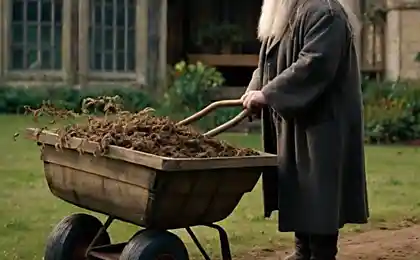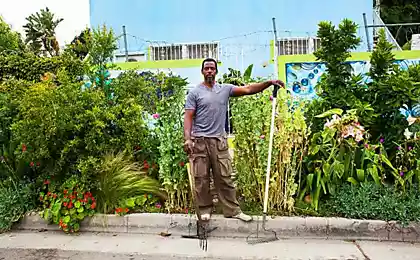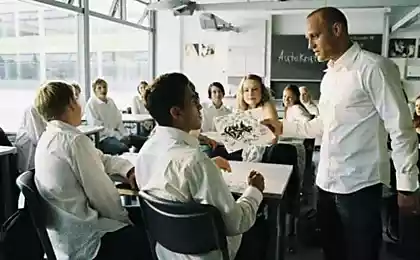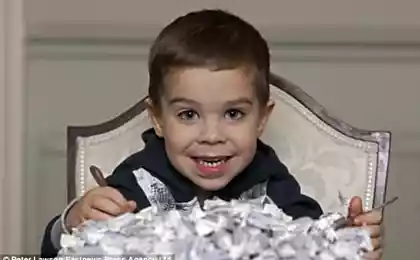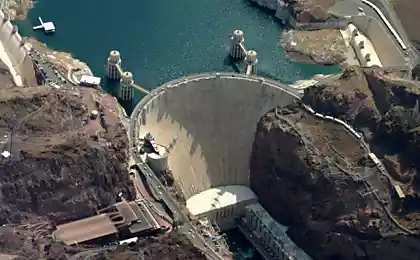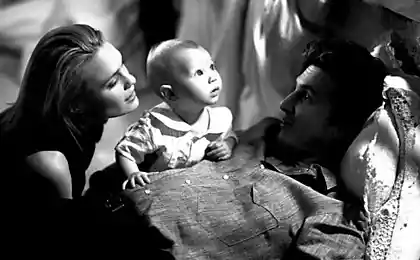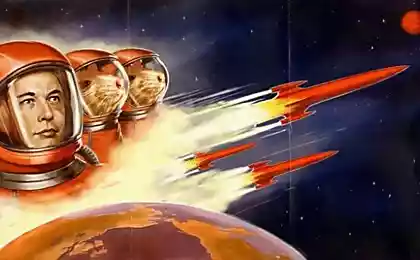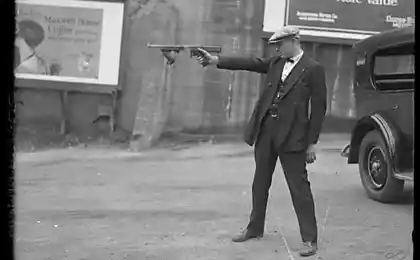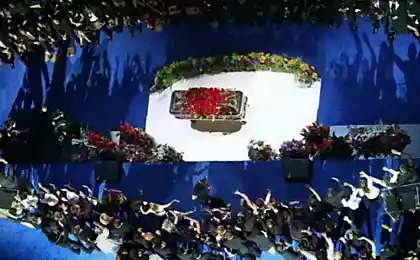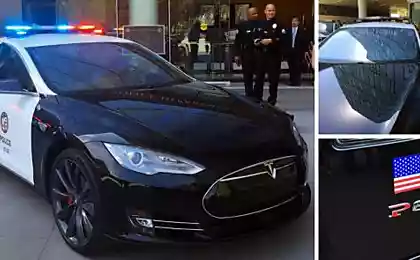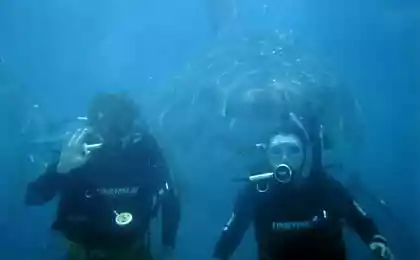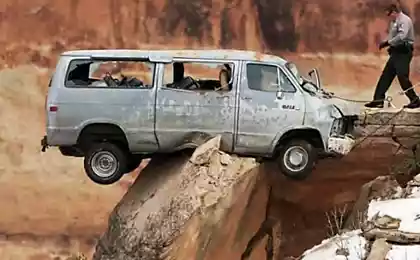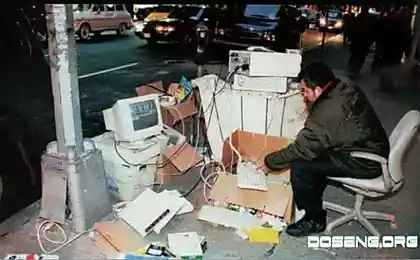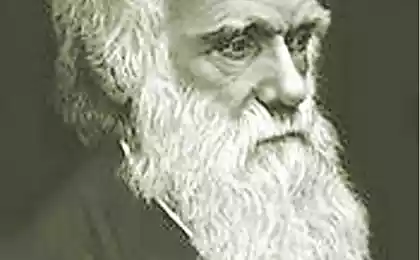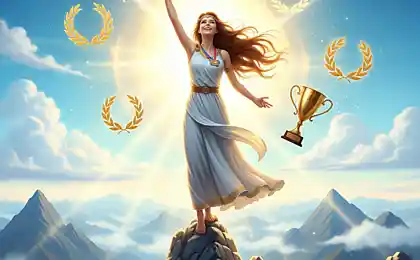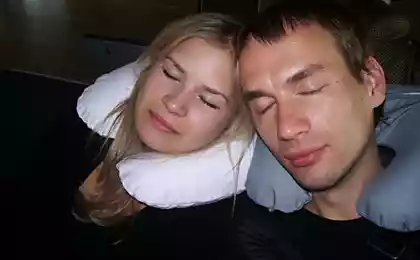567
Ron-Finley —green thumb-revolutionary from Los Angeles
Ron Finley (Ron Finley) is a grower-revolutionary from Los Angeles. He grows vegetables and fruits on the lawn in front of his house and plans to open a chain of healthy food restaurants across the country.
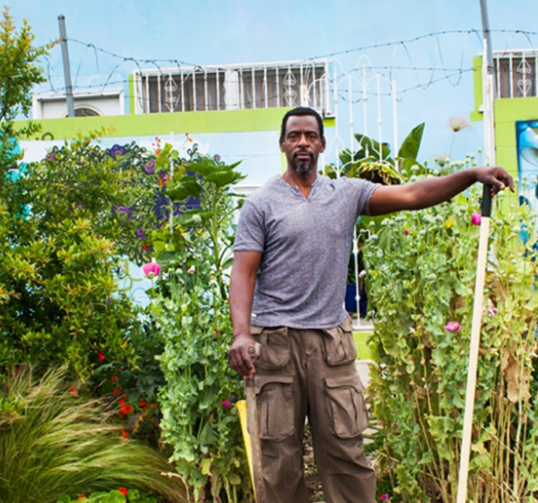
His view of the production of natural foods on their own are interesting, and his experience in this field deserves attention and repetition on a global scale. He is a great speaker and he is often invited to participate in various activities. One of the performances of Ron was held recently at the site of TED in California and immediately became an event and some quotes from his speech turned into motivators.
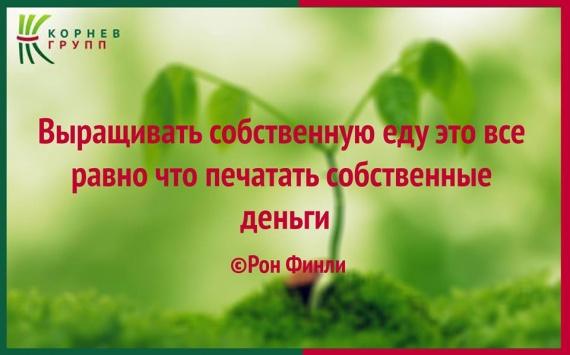
He managed to convey to the audience the depth of the problem of healthy nutrition in the cities and offer their variant of the solution.
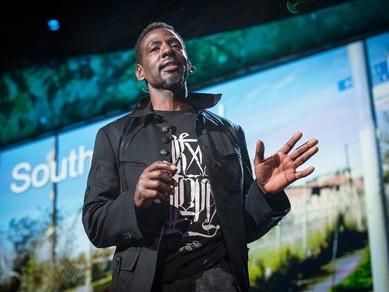
Ron Finley: I live in South Central. This is South Central: liquor stores, fast food, vacant lots. Once the governors decided to change the name South Central to something more presentable, and changed it to South Los Angeles, as if that will fix everything that is bad with this city. But nothing has changed!
Like other of 26.5 million Americans, I live in a food desert, South Central Los Angeles, the birthplace of the "food without leaving the car" and "shooting machine". Only there's food in the car kills more people than fire. In South Central people are killed treatable disease. For example, the obesity rate in my neighborhood is five times higher than in Beverly hills, which is only 12-16 miles.
I'm tired of this situation. And I thought how it feels when you are available healthy diet, every time, from the comfort of home, you see the destructive impact of the modern food system in your area? I see wheelchairs bought and sold like used cars. I see dialysis centers popping up like Starbucks. I decided that it must stop.
I realized that the problem is the solution. The food is the problem and food is the solution.
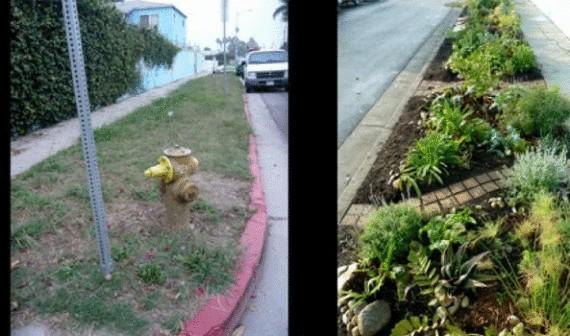
And I tired to drive 45 minutes to find an Apple that wasn't impregnated with pesticides. Then I planted a garden in front of his house. On a piece of land that separates the sidewalk from the road. 45 meters by 3 meters. The fact that she belongs to the city. But you have to maintain it. And I thought, "Cool. I can do anything with it, because it's my duty to keep this land." I want to keep it that way.
I and my group, L. A. Green Grounds, we got together and started to break up the beds, planted fruit trees, vegetables. The team works on a voluntary basis and is composed of gardeners from all walks of life, from all over the city working for free. And everything we do, for free. Our garden was wonderful. And then someone filed a complaint.
The Council ganged up on me and issued the order saying that I have to remove my garden, and then they still issued a warrant. I tell them: "You kidding? A warrant for what I have mastered a piece of land that you yourself saw in the coffin?" Tell them: "Fine. Act". And this time they're not gone. About us wrote in the L. A. Times. Steve Lopez's off about this story and appealed to the city Council, and one of the participants Green Grounds, created a petition on Change.org which gathered 900 signatures, it was a success. We won. The city Council even called in and said that fully support our initiative. I mean, come on, why wouldn't they?
Los Angeles leads in the number of vacant land owned by the city. This 67 square miles of vacant land. That's 20 Central parks. That's enough space to plant 725 million tomato bushes
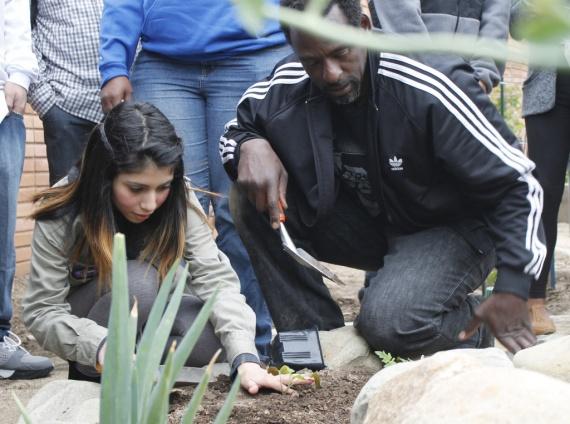
Yes, why would they not okay this? Growing one plant will give you 1,000, 10,000 seeds. One dollar invested in seeds of beans, will give you a harvest price of $ 75. People to grow food, I give them such an installation.
Growing your own food is like printing your own money.
My roots are in South Central. I grew up here. I raised my sons there. And I refuse to be a part of this manufactured reality that was manufactured for me by some other people, and I create my conditions.
I'm an artist. Gardening is my graffiti. I grow my. As a graffiti artist decorates walls, I decorate the lawns. I use the garden soil like it's cloth, and the plants and trees pattern, which I decorated with this fabric. You will be surprised by the effect of the earth, which is used creatively. Just imagine how amazing a sunflower is and how it affects people.
What happened? My garden has become a tool for obtaining knowledge, a tool for the transformation of my neighborhood.
To change the community, you need to change the composition of the soil. We are the soil. You won't believe how it affects children.
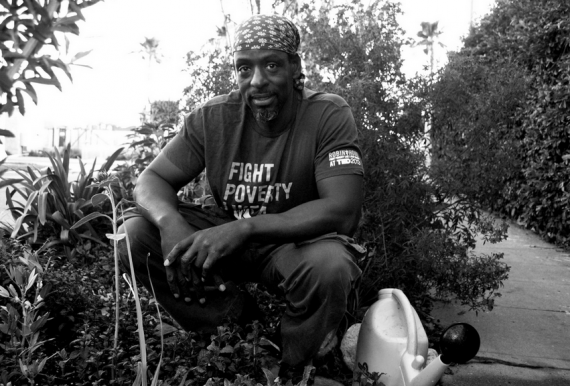
Gardening is the most therapeutic and defiant act you can do, especially in the inner city. And it allows you to eat your strawberries.
I remember once, a mother came with her daughter, around 10:30 p.m., and crawled into my yard. I went to him, and it was very awkward. I was sad that they had to do and I said that they don't need this anymore. This is on the street. I was so ashamed, I saw people who lived in the neighborhood and starving, and this only reinforced my intentions.
I asked, "fin, aren't you afraid that people will come and steal your food?" I answered them: "come on, I'm not afraid that they will steal it. That's why it's on the street.
That's the point. I want to take my crop, while regaining their health".
Once I put a garden in this homeless shelter in Central Los Angeles. The guys helped me unload the truck. It was great, they told how what we do affects them, and how they tinkered in the garden with mom or grandma, it was great to see them change for the better, and this is just one example from my experience.
So Green Grounds has created a total of 20 gardens. About 50 people came to work on plantations, all on a voluntary basis.
The kids grow Kale, kids eat Kale. If they grow tomatoes, they eat tomatoes. But when none of that they are not available, if they are not shown how food affects the mind and body, they will blindly eat whatever they offered. I look at young people and see the desire to work, but they are hostages of a situation when future children are not from white families are predefined for them, this road leads nowhere.
In gardening, I see an opportunity to show children how they can reclaim their communities, to have a sustainable life. And when we do this, who knows, maybe we might produce the next George Washington Carver (American biologist). But if we do not change the composition of the soil, nothing happens.
Here is one of my plans. I want to do next. I want to fill the whole block with gardens to create a local food supply.
To make shipping containers into healthy cafes.
Don't get me wrong. We are not talking about the freebies, free is not sustainable. The whole point of sustainable life that you need to support it.
I'm talking about the need to take people to work, not to get the kids off the street, but to show the joy and dignity experienced by growing their own food, opening farmer's markets.
What I want is to make gardening appealing. Want us to become rebellious eco-revolution. Gangsters-gardeners.
We must change the meaning of the word gangster. If you're not a gardener, you ain't gangster. Get gangsta with your shovel, okay? And let it be your weapon.
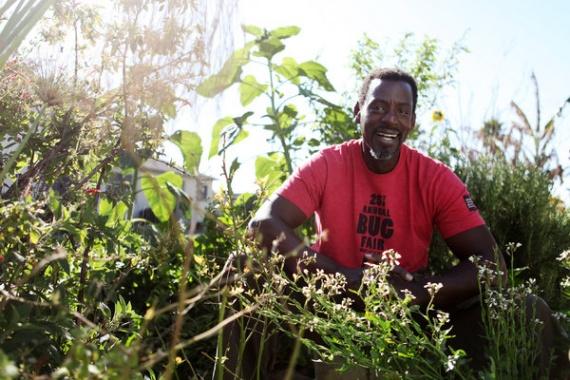
So, if you want to meet me, to take and to meet, then don't call me to sit with you in comfortable chairs, discussing at their meetings how are you going to do something, like we give them hell. If you want to meet me, come to the garden with your shovel so we can plant some shit.
Thank you!
You can also watch the video of this entry into English
Source: rodovid.me

His view of the production of natural foods on their own are interesting, and his experience in this field deserves attention and repetition on a global scale. He is a great speaker and he is often invited to participate in various activities. One of the performances of Ron was held recently at the site of TED in California and immediately became an event and some quotes from his speech turned into motivators.

He managed to convey to the audience the depth of the problem of healthy nutrition in the cities and offer their variant of the solution.

Ron Finley: I live in South Central. This is South Central: liquor stores, fast food, vacant lots. Once the governors decided to change the name South Central to something more presentable, and changed it to South Los Angeles, as if that will fix everything that is bad with this city. But nothing has changed!
Like other of 26.5 million Americans, I live in a food desert, South Central Los Angeles, the birthplace of the "food without leaving the car" and "shooting machine". Only there's food in the car kills more people than fire. In South Central people are killed treatable disease. For example, the obesity rate in my neighborhood is five times higher than in Beverly hills, which is only 12-16 miles.
I'm tired of this situation. And I thought how it feels when you are available healthy diet, every time, from the comfort of home, you see the destructive impact of the modern food system in your area? I see wheelchairs bought and sold like used cars. I see dialysis centers popping up like Starbucks. I decided that it must stop.
I realized that the problem is the solution. The food is the problem and food is the solution.

And I tired to drive 45 minutes to find an Apple that wasn't impregnated with pesticides. Then I planted a garden in front of his house. On a piece of land that separates the sidewalk from the road. 45 meters by 3 meters. The fact that she belongs to the city. But you have to maintain it. And I thought, "Cool. I can do anything with it, because it's my duty to keep this land." I want to keep it that way.
I and my group, L. A. Green Grounds, we got together and started to break up the beds, planted fruit trees, vegetables. The team works on a voluntary basis and is composed of gardeners from all walks of life, from all over the city working for free. And everything we do, for free. Our garden was wonderful. And then someone filed a complaint.
The Council ganged up on me and issued the order saying that I have to remove my garden, and then they still issued a warrant. I tell them: "You kidding? A warrant for what I have mastered a piece of land that you yourself saw in the coffin?" Tell them: "Fine. Act". And this time they're not gone. About us wrote in the L. A. Times. Steve Lopez's off about this story and appealed to the city Council, and one of the participants Green Grounds, created a petition on Change.org which gathered 900 signatures, it was a success. We won. The city Council even called in and said that fully support our initiative. I mean, come on, why wouldn't they?
Los Angeles leads in the number of vacant land owned by the city. This 67 square miles of vacant land. That's 20 Central parks. That's enough space to plant 725 million tomato bushes

Yes, why would they not okay this? Growing one plant will give you 1,000, 10,000 seeds. One dollar invested in seeds of beans, will give you a harvest price of $ 75. People to grow food, I give them such an installation.
Growing your own food is like printing your own money.
My roots are in South Central. I grew up here. I raised my sons there. And I refuse to be a part of this manufactured reality that was manufactured for me by some other people, and I create my conditions.
I'm an artist. Gardening is my graffiti. I grow my. As a graffiti artist decorates walls, I decorate the lawns. I use the garden soil like it's cloth, and the plants and trees pattern, which I decorated with this fabric. You will be surprised by the effect of the earth, which is used creatively. Just imagine how amazing a sunflower is and how it affects people.
What happened? My garden has become a tool for obtaining knowledge, a tool for the transformation of my neighborhood.
To change the community, you need to change the composition of the soil. We are the soil. You won't believe how it affects children.

Gardening is the most therapeutic and defiant act you can do, especially in the inner city. And it allows you to eat your strawberries.
I remember once, a mother came with her daughter, around 10:30 p.m., and crawled into my yard. I went to him, and it was very awkward. I was sad that they had to do and I said that they don't need this anymore. This is on the street. I was so ashamed, I saw people who lived in the neighborhood and starving, and this only reinforced my intentions.
I asked, "fin, aren't you afraid that people will come and steal your food?" I answered them: "come on, I'm not afraid that they will steal it. That's why it's on the street.
That's the point. I want to take my crop, while regaining their health".
Once I put a garden in this homeless shelter in Central Los Angeles. The guys helped me unload the truck. It was great, they told how what we do affects them, and how they tinkered in the garden with mom or grandma, it was great to see them change for the better, and this is just one example from my experience.
So Green Grounds has created a total of 20 gardens. About 50 people came to work on plantations, all on a voluntary basis.
The kids grow Kale, kids eat Kale. If they grow tomatoes, they eat tomatoes. But when none of that they are not available, if they are not shown how food affects the mind and body, they will blindly eat whatever they offered. I look at young people and see the desire to work, but they are hostages of a situation when future children are not from white families are predefined for them, this road leads nowhere.
In gardening, I see an opportunity to show children how they can reclaim their communities, to have a sustainable life. And when we do this, who knows, maybe we might produce the next George Washington Carver (American biologist). But if we do not change the composition of the soil, nothing happens.
Here is one of my plans. I want to do next. I want to fill the whole block with gardens to create a local food supply.
To make shipping containers into healthy cafes.
Don't get me wrong. We are not talking about the freebies, free is not sustainable. The whole point of sustainable life that you need to support it.
I'm talking about the need to take people to work, not to get the kids off the street, but to show the joy and dignity experienced by growing their own food, opening farmer's markets.
What I want is to make gardening appealing. Want us to become rebellious eco-revolution. Gangsters-gardeners.
We must change the meaning of the word gangster. If you're not a gardener, you ain't gangster. Get gangsta with your shovel, okay? And let it be your weapon.

So, if you want to meet me, to take and to meet, then don't call me to sit with you in comfortable chairs, discussing at their meetings how are you going to do something, like we give them hell. If you want to meet me, come to the garden with your shovel so we can plant some shit.
Thank you!
You can also watch the video of this entry into English
Source: rodovid.me
Unique electroporator with the Kiev registration
Energy efficient office of the Institute of Geology
